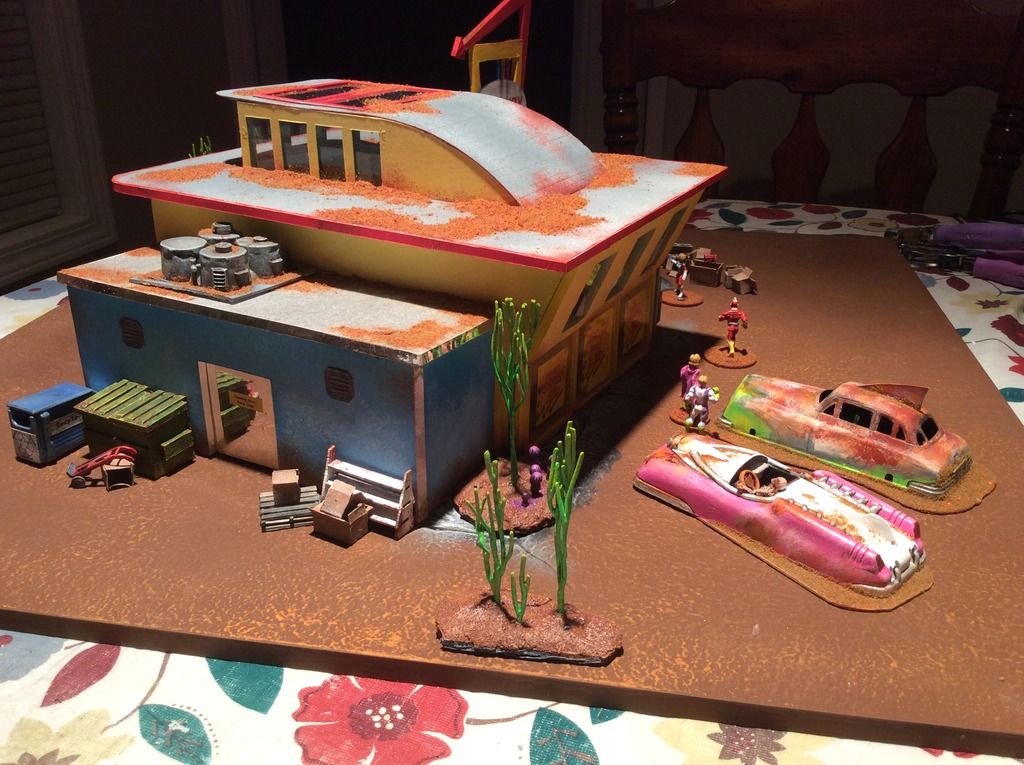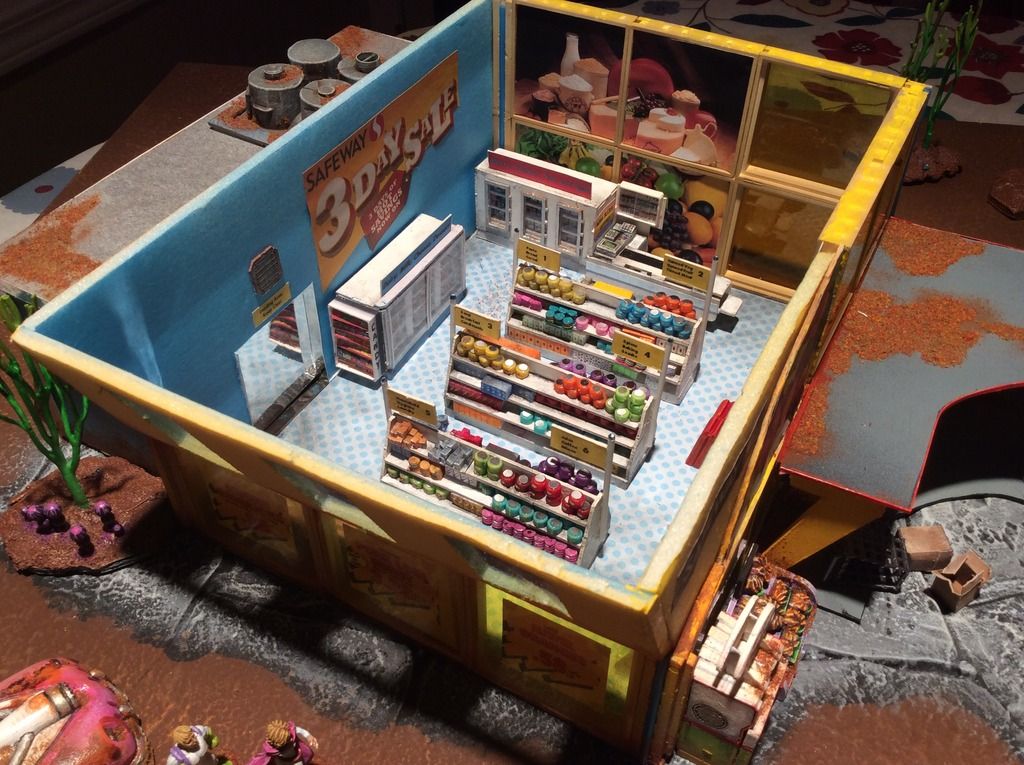Life on Planetoid 51 Part B
Another impression which the newcomer can expect is that extraneous controls of his lifestyle are obvious. Due to the limitations by which supplies and materials can be delivered over the vastness of space, a master plan is in place to manage all resources and individual consumption. This begins with the colonist's control of his personal funds. For the purpose of controlling inflation and black marketing, colonists are provided a daily allowance for their expenses. The bulk of their wages are kept in the bank and they are encouraged to invest this portion into bonds and stocks via the bank's stockbrokers. Additional funds may be acquired on a "as needed basis". The colonist meets with the bank teller and his requests is approved or denied after it filters through a master computer program which determines the impact the allowance may have upon the larger economy. The negative impact of a refusal is mitigated by a free gift of a ballpoint pen (if stock supplies allow).
As much as possible, a variety of consumer goods are made available for purchase. This is a necessary practice as access to shopping and personal goods adds to the enjoyment of life on the distant colony. However popular goods require rationing in order to reasonably meet overall demands and to avoid the unsightly look of near empty store shelves. The colonist must get use to the practice of "look but don't touch" whenever certain items undergo a big run in demand. The tradition of Christmas is a period of great challenge and headaches for the administrators of consumable supply management. On more than one occasion they have considered banning the holiday however the rioting and strikes which occurred following an prior aborted ban on birthday parties, continues to be a big factor that delays a final resolution.
It should be understood that the ration and supply system is not rigidly utilitarian as many impractical items requiring a large expenditure of credit are allowed upon request. For an example, flying cars are goods which takes up a great amount of transport space but only benefits a few. Because fly driving brings enjoyment and convenience to its owner, cars are accepted to be a necessary luxury and every few months freighters bring in new supplies or parts. Although company executives are given priority access, a growing number of ordinary colonists can be seen flying
their own vehicles.
A trade of second hand goods helps to partially offset the occasional shortfall in consumer goods. Colonists waiting to return to Earth would offload parts of their personal belongings as a limited weight load is permitted on the return voyage. Unlike those on Earth, retail stores typically buy and refurbish used goods. Direct exchange between colonists is also permitted. Trades involving cash, even though refused by the bank, may still take place through the use of official promissory notes between the seller and buyer. These can then be exchanged for cash once one party returns to Earth.
Social life on the colony is said to be active and satisfying. The majority of the workforce is young and unattached and are eager to engaged with others. Social dances, bowling nights, swim parties and roller skating are popular group activities. Romance is not discouraged by authorities unless it becomes a distraction that affects productivity. Participation in amateur sports is promoted. Larger communities and corporations maintain amateur baseball and football teams. The current societal norm places great emphasis upon community conformity supported by the unrestricted use of security cameras by the authorities.
Crime is well controlled on the colony. Prompt removal of problematic persons is the job of the local constabulary. Persons convicted of a serious criminal offence will be returned to Earth as soon as possible for imprisonment. They will also be blacklisted and denied travel access to all off world stations. Those convicted of a lesser offence can expect increase monitoring of their activities until reasonably good faith is re-established with the authorities. Executions of rogue robots (those deemed too intelligent for their own good) are televised live and always draw a big viewing audience.
Each colonist must exercise their right and freedom to work productively at their job. Anyone failing to meet their contractual obligations are detained until a new occupation is assigned. A second failure will result in a second detention, black listing and then removal from the colony. Deportation is always charged to the detained person. A typical one way fare to Earth will cost the average worker on Earth, a quarter of his annual salary. Even given the high average wages earn on a space colony, the ticket price acts as a deterrent to slackers.
Good health service is an required component for all space travel and settlement given the inherent rigours and dangers. Planet 51 boasts several health centres that offer a full complement of medical and health services. Surgery, dentistry and cellular rejuvenation are but a few named services enjoyed by the colonists. Funded largely between the giant corporations and government, the colonist is still expected to defray a small fraction of the cost via their personal health insurance. A proud medical milestone was recently achieved following a string of successful births.
Sadly despite the remarkable advancements in health science, natural death is inevitable. The pre-deceased can draw some comfort that their remains will benefit their survivors as it is recycled into the colony's food chain. Many even choose to have their favourite pet(s) euthanize at the same time in order to enhance their joy of having their close companion in life minced in unison beyond death.

